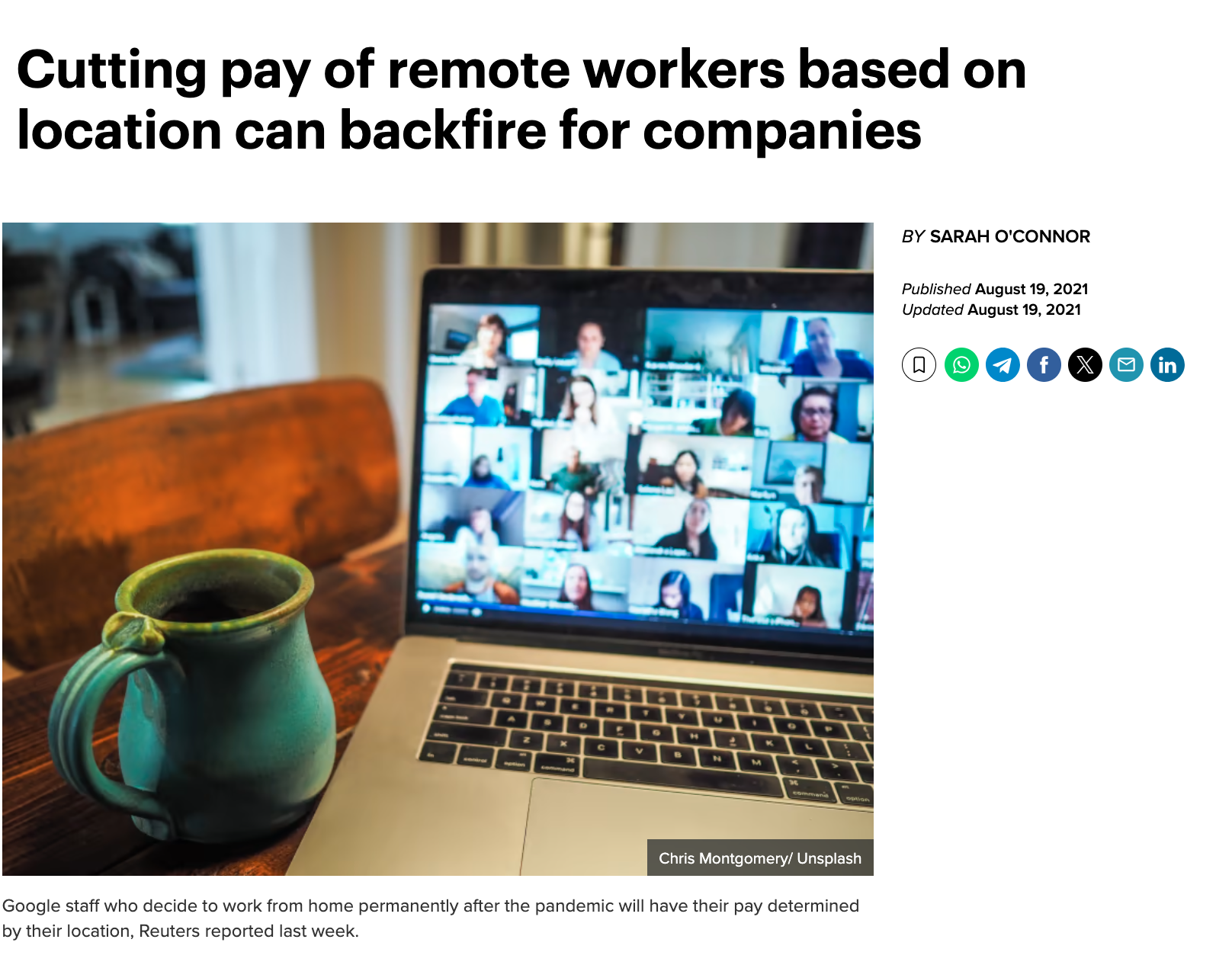Challenges Remote Workers Face with Location-Dependent Salary Cuts
 Staytion
Staytion
Earlier this year, Reuters reported that Google employees choosing permanent remote work post-pandemic would see their salaries adjusted according to their location. The pandemic presented urban workers transitioning to remote roles with a unique opportunity: the ability to move to more affordable areas while retaining their city-level salaries.
With the upcoming implementation of new Flexible Working Arrangements (FWA) guidelines in Singapore scheduled for December this year, how might this impact such arrangements?
Quoting the article "Cutting pay of remote workers based on location can backfire for companies" penned by Sarah O'Connor, TODAY:
"There were hopes this could rebalance our economies too, by allowing good jobs to spread out of expensive and overcrowded cities into areas that could use the boost.
But as employers begin to adjust their policies to a post-pandemic world, there is a possibility the dream will evaporate. If you move to cut your living expenses, your employer might cut your pay.
Google staff who decide to work from home permanently after the pandemic will have their pay determined by their location, Reuters reported last week.
Someone living in Stamford, Connecticut will be paid 15 per cent less if they work from home, unlike someone who works from home in New York City, for example. Facebook and Slack have also said they will adjust people’s salaries based on where they live. "
The excerpt highlights a significant shift in employment dynamics as companies like Google, Facebook, and Slack consider adjusting salaries based on employees' locations post-pandemic. Initially seen as a potential opportunity to decentralize job opportunities from expensive urban centers to more affordable regions, remote work was poised to rebalance economies and provide economic benefits to less populated areas.
However, the reality of salary adjustments based on location introduces complexities. Employees who opt to relocate for cost savings may face salary reductions, potentially offsetting the financial advantages of moving to cheaper areas. This situation raises questions about the long-term sustainability of remote work's economic benefits, especially in the context of new Flexible Working Arrangements (FWA) guidelines set to be implemented in Singapore later this year.
Linking back to the new FWA guidelines, which aim to formalise and regulate flexible work policies, there may be parallels in how companies manage salary disparities across different locations. These guidelines could influence how companies approach remote work policies, balancing the flexibility desired by employees with equitable compensation practices that align with local living costs and regulatory expectations.
As remote work continues to evolve post-pandemic, navigating these issues will be crucial for both employers and employees seeking to maximise the benefits of flexible work arrangements while addressing economic disparities across regions.
Need a space to work away from the office? Staytion has you covered!
With locations spanning seven countries, you can rest assured that finding a convenient workspace is hassle-free!
Subscribe to my newsletter
Read articles from Staytion directly inside your inbox. Subscribe to the newsletter, and don't miss out.
Written by


